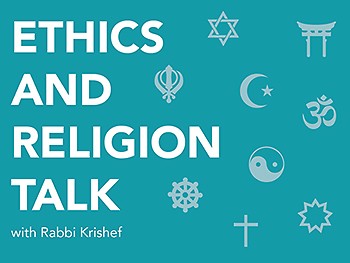Fred Stella, the Pracharak (Outreach Minister) for the West Michigan Hindu Temple, responds:
“What has been come to be known as the caste system in Hinduism has influenced much of the rest of the world to take a dim view of the religion. One would get no argument from me as to acknowledging the oppression and absurd discrimination its corruption has caused. But there was an initial wisdom that inspired it. Those vast complexities are not on point here, but there is one element of the tradition that might be appreciated by Westerners. The more appropriate word for caste, Varna, offered society a significant benefit: separation of powers.
“There was something of a wall between the governing (kshatriya) class and the mercantile (vaishya) class. Ideally, there should have been no influence on matters of state by those who held wealth. Foreign chroniclers visiting India were impressed at the functioning of society when this was in effect. However, this was not representative government, as we know it. Since Indian independence after World War II, the nation has been a strong democracy. However, sadly, graft and corruption have severely wounded its growth, as they have strayed from the high-minded principles of their forebears.
“Certainly, we seem to be in a situation not dissimilar. At this moment, we have many laws on our books that were crafted by large corporate donors that are more profit oriented than people centered. In addition, this transcends the political into the realm of morality when it effects the quality of the lives of the impoverished, the environmental landscape and human dignity.”
The Reverend Colleen Squires, minister at All Souls Community Church of West Michigan, a Unitarian Universalist Congregation, responds:
“Money in politics erodes our democracy because our elected officials make policy and laws based on who is contributing to their campaign rather than legislating changes based on the will and wants of the people they represent. For example, in a recent NPR article it is reported that 61% of citizens want stricter gun laws yet because of the sizable financial influence that gun lobbyists have on our politicians the will of the people is being ignored. This is both morally and ethically wrong because politicians are elected to represent ALL the people they serve and not just the wealthy.”
Rev. Ray Lanning, a retired minister of the Reformed Presbyterian Church of North America, responds:
“Matthew’s Gospel reports that when Christ rose from the dead, the watchmen posted at His tomb reported to the chief clergymen what had happened that day. The ministers met with the elders and decided to give ‘large money’ to these soldiers and instructed them to say, ‘His disciples came by night, and stole him away while we slept.’ Matthew notes: ‘They took the money, and did as they were taught’ (Matthew 28:11-15). A very believable account of very human behavior, on all sides.
“Where ‘large money’ is given and taken, there is an implied contract. The one who gives the ‘large money’ makes an investment and expects something in return. The one who takes it agrees to do as he is told. It’s called bribery. Presbyterianism teaches that bribery is a sin forbidden by the eighth commandment (‘Thou shalt not steal,’ Exodus 20:15; Larger Catechism Q. 142).
“But it costs a fortune to run for public office! It follows that politicians must take ‘large money’ from wealthy donors and will tend to do their bidding, not ours. Rare is the man or woman with the faith and fortitude to resist the corrupt dynamics of the situation (Psalm 15). Is there no better way to meet the real costs of the election process? To insure that the people we elect are free to seek the common good, not serve the special interests of wealthy donors? ‘The king by judgment establisheth the land: but he that receiveth gifts overthroweth it’ (Proverbs 19:4).”
My response:
A central Biblical principle of leadership and judgement is not to let wealth or privilege affect the fairness of law or judgement:
"You shall not render an unfair decision: do not favor the poor or show deference to the rich; judge your kinsman fairly" [Leviticus 19:15].
"Hear out your fellow men, and decide justly between any man and a fellow Israelite or a stranger. You shall not be partial in judgment: hear out low and high alike" [Deuteronomy 1:16-17]
Abraham Lincoln began his Gettysburg Address with a mention of a principle derived from the bible that all people [men] are created equal, and concluded by describing government as “of the people, by the people, for the people.” In a properly constituted government, all people have a voice in making the laws of the country. Money becomes an unethical influence when access to lawmakers requires money or when small numbers of contributors can purchase influence beyond their numbers.
This column answers questions of Ethics and Religion by submitting them to a multi-faith panel of spiritual leaders in the Grand Rapids area. We’d love to hear about the ordinary ethical questions that come up in the course of your day as well as any questions of religion that you’ve wondered about. Tell us how you resolved an ethical dilemma and see how members of the Ethics and Religion Talk panel would have handled the same situation. Please send your questions to [email protected].
The Rapidian, a program of the 501(c)3 nonprofit Community Media Center, relies on the community’s support to help cover the cost of training reporters and publishing content.
We need your help.
If each of our readers and content creators who values this community platform help support its creation and maintenance, The Rapidian can continue to educate and facilitate a conversation around issues for years to come.
Please support The Rapidian and make a contribution today.
